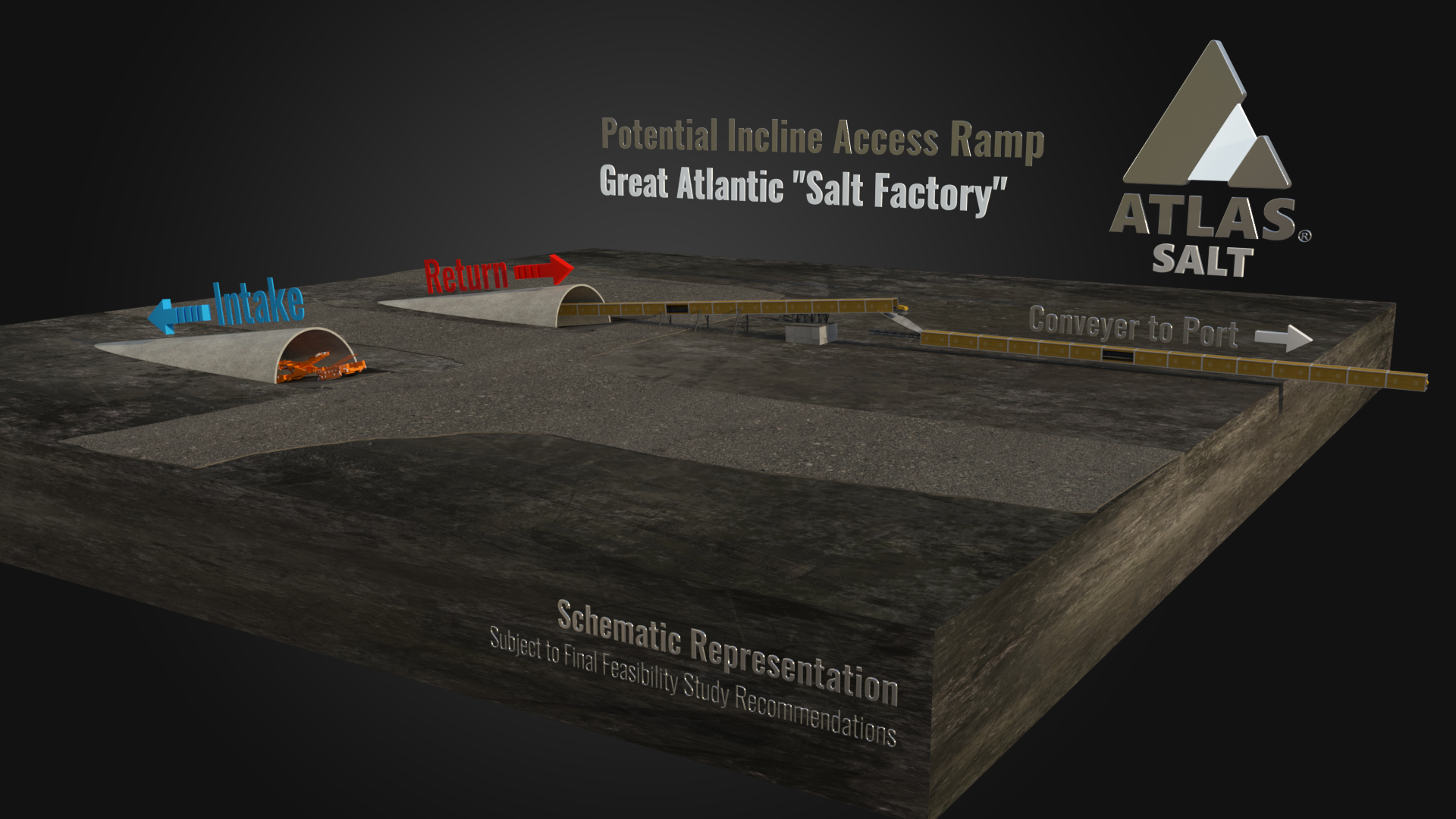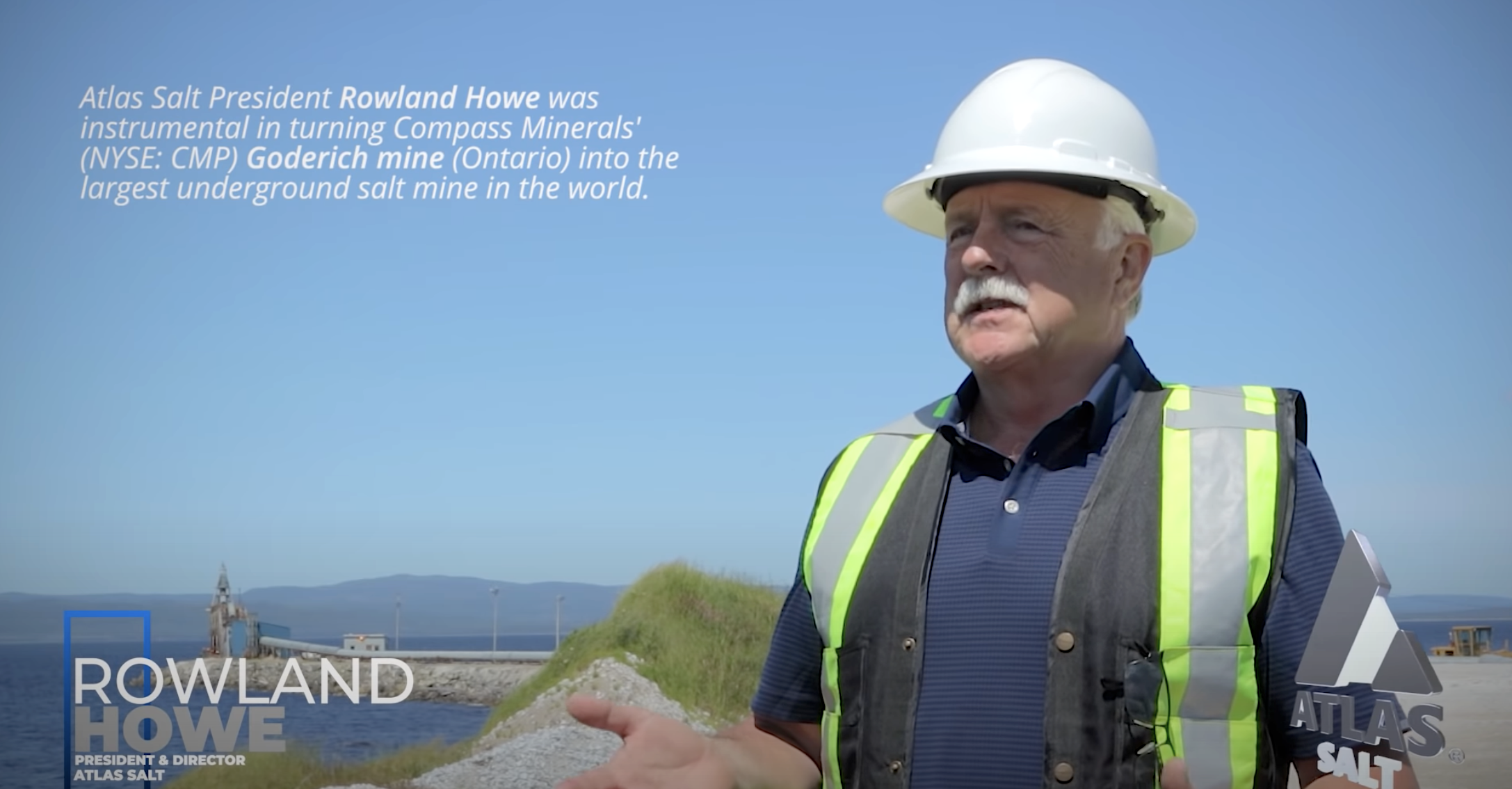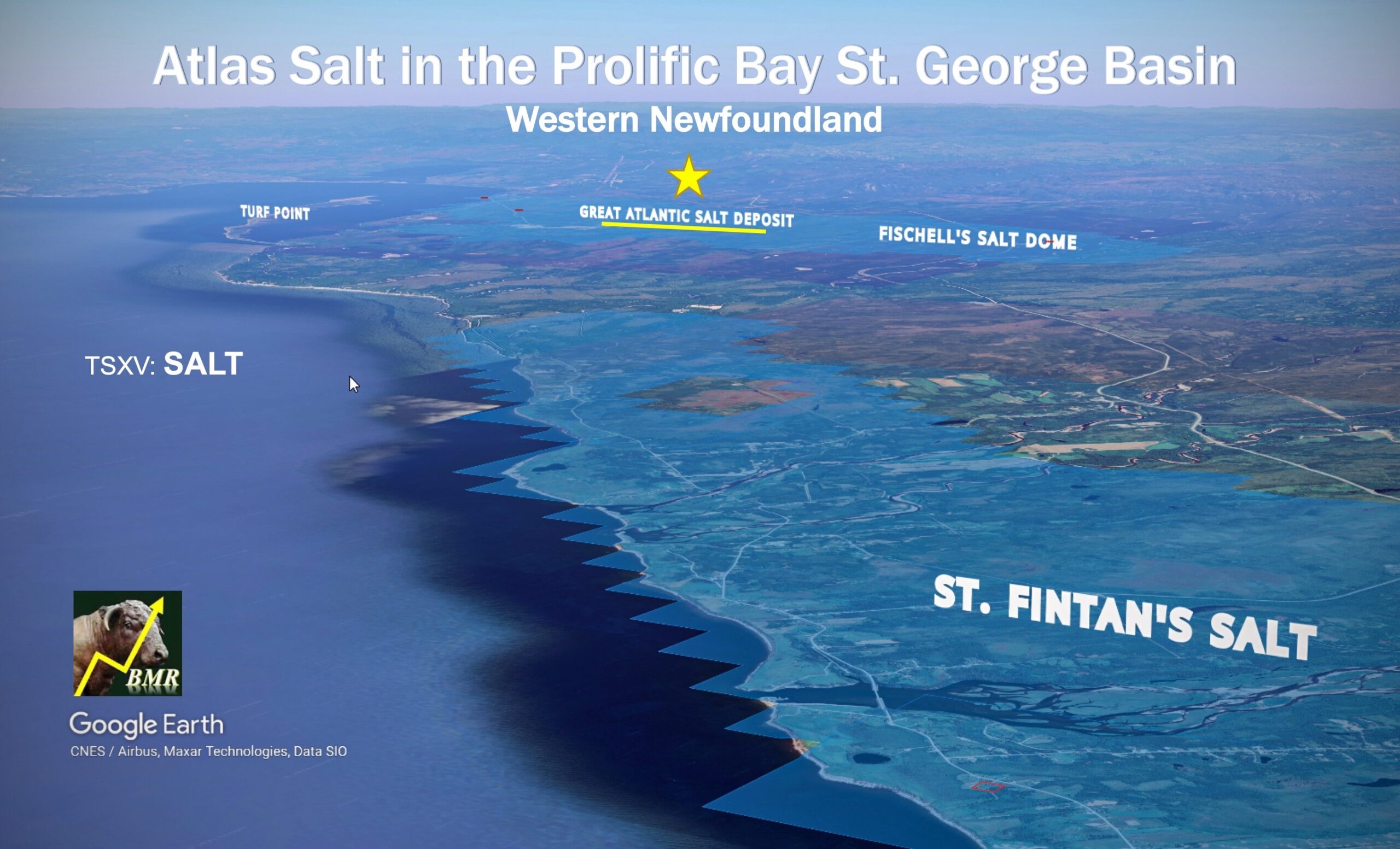January 31, 2022
SALTsATIONAL !!!
Today’s news from Atlas Salt (SALT, TSX-V) is just the tip of a Newfoundland iceberg (https://atlassalt.com/atlas-advances-great-atlantic-feasibility-study-drill-program-steps-out-500-meters-on-first-hole/).
The Bay St. George Sedimentary Basin is truly SALTsATIONAL. It extends for about 100 km, and Atlas owns 100% of the best parts of it based on an incredible database comprising seismic and other data obtained from Oil and Gas exploration many years ago.
The jewel in this crown, the Cash Cow that’s going to be the gift that keeps on giving for decades, is of course the Great Atlantic Salt deposit.
Today we got ample fresh evidence that Great Atlantic is truly world class, the Eskay Creek of Salt deposits as we’ll elaborate on in another post.
The looming battle over who ultimately puts this unique resource into production, at a time when security of supply issues are haunting the road Salt sector, is going to make the Wyloo–BHP battle over Noront’s riches seem like a tea party.
Very special geological forces produced the shallowest Salt deposit in all of eastern North America immediately beside a deep water port in western Newfoundland.
Think for a minute about the implications of that.
Compass Minerals (CMP, NYSE) is currently the largest and lowest cost producer in the road Salt sector (thanks in part to Rowland Howe!) at $45 (CDN) per tonne (all-in, includes shipping). They are fetching $85 (CDN) per tonne for product.
Compass is mining very profitably from a depth of 1,800 feet. The top of the Great Atlantic deposit is 600 feet.
As Howe (“Mr. Salt”) confirmed today, Great Atlantic is on track (pending final geotechnical evaluations from current drilling) to become the first underground Salt mine in North America accessed through inclined ramps as opposed to vertical shafts.
A first in North America – another feather in the cap of “Mr. Salt”.
And in resource-friendly and infrastructure-rich Newfoundland where they cheer development and success like this.

The CAPEX and operational cost savings for this unique scenario are profound – so profound, we would argue, that privately held giant Stone Canyon, and publicly traded Compass, simply cannot afford to NOT get their hands on this deposit.
Call it The Battle For Great Atlantic. And it’s coming to a theatre near you, soon.

Below is a transcript of 2 key questions we asked Rowland in an interview late this afternoon:
BMR: “I’m sure you could easily put this deposit into production yourself, Rowland – I gather you’ve got lots of backers who would get behind you on this, no problem at all. Is it your thinking that you want to put this into production yourself? There are some potential suitors out there, obviously.”
Rowland Howe: “I think the answer is quite simple. Our focus has always been on shareholder value. And our plan will do whatever is required to maximize shareholder returns and get the best bang for the buck.”
BMR: “Okay, Great Atlantic is certainly shaping up to be a disruptive low cost producer, so my next question is, how could a Stone Canyon or a Compass or another player or two afford NOT to have this asset?”
Rowland Howe: “I guess that’s a question that they’re going to have to contemplate and ask themselves.”
Enough said.
Now, just when you thought you couldn’t handle even more great news, comes this…
Below is a Google Earth image we produced that really puts into perspective the scale of Atlas‘ holdings in the prolific Bay St. George Basin.
It would be a reasonable ballpark estimate (not NI-43–101 compliant, of course) that the total amount of Salt underlying Great Atlantic, Fischell’s Brook and St. Fintan’s easily exceeds a combined 10 billion tonnes.
The deposit at Great Atlantic, of course, is unique – it’s very high-grade, homogeneous and shallow. Enough at the current resource estimate to maintain production for 100 years at 4 million tonnes a year (Goderich has been producing for 60 years).
Fischell’s Brook and St. Fintan’s are different, but special in their own right. They are Salt caverns, ideal for the storage of renewable energy (potentially green hydrogen derived from a wind energy project as the wind resource in this part of Newfoundland is extraordinary). Fortescue Future Industries has already publicly disclosed its interest in Newfoundland & Labrador for potential green hydrogen projects, and they are well aware of the Bay St. George Basin and Atlas Salt.
- Fischell’s Brook, officially a “Salt Dome”, has a minimum surface footprint of 2.25 sq. km and a known vertical extent of at least 1,000 m in areas – this is a huge structure by Salt Dome standards, representing in the neighbourhood of 500 million cubic meters of potential storage space (actual storage capacity would be less, but this is a world class Salt Dome in terms of its size and strategic location). Upcoming gravity survey results will help define the boundaries of Fischell’s Brook;
- The claims (St. Fintan’s Salt) staked by Atlas last spring along the coast, based on historic seismic data, cover what’s interpreted to be a “Salt Ridge” extending for a whopping 20 km (west to east). At least half of this structure is considered prospective for Salt caverns;
- What you see below is unique in all of Canada – there’s nothing else like it.

Stay tuned!
Disclaimer: BullMarketRun.com is strictly reader/subscriber funded, independent of the companies it covers as we accept no advertising on our site and no fees or compensation for any of our coverage. Our material is for informational and entertainment purposes only and must not be viewed or interpreted as “buy”, “sell” or “hold” recommendations. No investment opinion or other advice is being rendered on any stock or company. We strongly recommend that you consult with a qualified investment adviser, one licensed by appropriate regulatory agencies in your legal jurisdiction, and perform your own due diligence and research before making any investment decisions. The stocks we cover, by definition. are highly speculative and potentially very volatile. Investors are cautioned that they may lose all or a portion of their investment if they make a purchase or short sale in these speculative stocks. We are not Registered Secuirites Advisers. Our opinions can only be construed as a solicitation to buy and sell securities when they are subject to the prior approval and endorsement of a Registered Securities Adviser operating in accordance with the appropriate regulations in your area of jurisdiction. It should be assumed that BMR personnel, writers and associates may hold or dispose of or trade in positions in any securities mentioned herein at any time. BMR or its personnel were not compensated in any way for the creation or distribution of this article.
Note: John, Jon and Daniel hold share positions in SALT.

8 Comments
nothing about this that doesnt spell success!!:)
Is this the report we waited with bated breath for or should we keep our breath bated a little longer?
Not it’s not, its-only-money. Still to come.
Jon, how long to drill that 500 meter step out hole? Just curious if we will know this week or next if they hit SALT.
Dan1, as Rowland stated, Atlas will let investors know as soon as they’re into the Salt bed…my best guess is, anytime over the next 3-4 trading sessions…
First they go through some minor overburden (gravel essentially)…then they enter a sedimentary rock sequence…then the start of the Salt bed projected at or just under 200 m depth, half a km north of previous hole (CC-4) that cut 335 m @ nearly 97% Salt…
Seismic data and previous holes suggest a slight dip in deposit toward the south, which bodes very well for the possibility of an even thicker intercept on this hole starting a little shallower than CC-4…
Yeah, that’s the one thing that’s nice about this project, no sending results to a lab and waiting for weeks for results, just visiual and a great big LICK and we will be off to the races.
Jon, if that hole encounters a thicker salt bed, then you have to wonder how much further does the deposit extend towards the ocean…. Hmmm……
Good point, Dan1; the trend is your friend and the trend is clearly toward the deep water port.